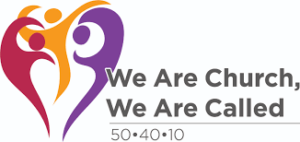2020 marks the 50th anniversary of the ordination of women in the ELCA, the 40th anniversary of women of color, and the 10th anniversary of LGBTQ+ siblings.
It’s an incredibly important marker for the ELCA, though it is only the beginning for the Church, as women are still denied ordination across the denominations and hold less than 15% of the leadership positions in the worldwide church! Therefore, in 2020, we in the Oregon Synod will highlight one woman from Christian history every week. Some you may know, others you may not, but all worthy of our respect and gratitude.
#2 Mary Magdalene
This week we honor Mary Magdalene, Apostle to the Apostles, whose importance to the burgeoning sect of Judaism that became Christianity is hard to overstate.
How do we know this? Well, number one, simply because she’s mentioned. Scripture was written in the context of such baked-in and rigid patriarchy that we know this truth to be self-evident: if a woman was mentioned, and named, she was very, very important. Not only do all four of our canonical gospels mention Mary Magdalene, they each mention her more than once. She also has a gospel (non-canonical) all her own.
Secondly, when women are listed, Mary of Magdala is listed first. This clues us into the fact that she was a leader.
Thirdly, we know she was important by the tremendous rap sheet that has developed around her. Why, when nothing in scripture indicates that she was anything other than a woman from a small town healed from demons, who chose to risk everything to follow Jesus has she been maligned in so many ways? Why would traditions develop labeling her a prostitute? Scholars tell us it’s likely that her leadership threatened some existing Christian powers and principalities. The age-old rumor mill that has dismissed and discounted multitudes of women.
The four gospel resurrection narratives vary in details, but they all agree on this point: Mary Magdalene was among the women who stayed through the crucifixion. She was the first to witness the risen Christ, and most importantly, she was the first to dare TELL about it. That is the very definition of “apostle” – one sent to share good and often disruptive news. The gospels were written by men, and yet they all base their stories of the risen Christ on the experience, the word, of a woman! Mary Magdalene truly was the Apostle to the Apostles.





